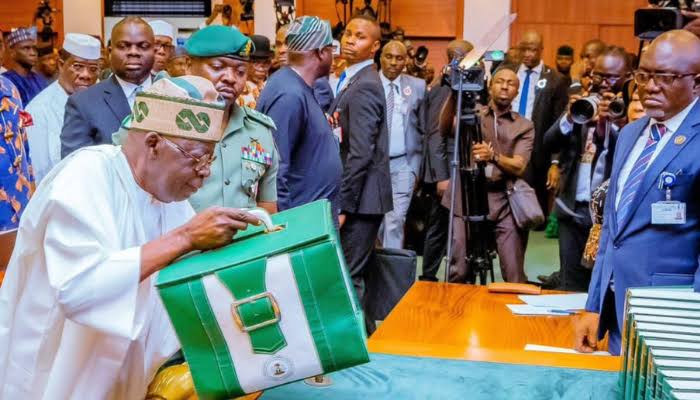By Abigail Philip David
President Bola Ahmed Tinubu will tomorrow present a proposed 2025 budget of N47.9 trillion to a joint session of the National Assembly. However, economic experts have raised concerns over the budget’s real value in dollar terms, its implications for economic growth, and its focus on recurrent expenditure.
Compared to the **2024 budget of $36.7 billion**, the **2025 budget**, based on the current exchange rate of N1,652.25/$1, amounts to **$28 billion**—the lowest in dollar value since 2018.
Budget Highlights
The Federal Executive Council (FEC) approved the proposed budget, which focuses on macroeconomic stability, infrastructure, and human capital development. Key areas include initiatives for agriculture, housing, gas sector development, consumer credit, and manufacturing.
The 2025 budget projects **total revenue of N34.82 trillion** and a **deficit of N13.13 trillion** (3.89% of GDP). This marks an improvement from the 6.1% deficit inherited in 2023, despite a 36.8% rise in total expenditure compared to 2024.
The framework relies on:
– Oil benchmark price: $75 per barrel
– Daily oil production: 2.06 million barrels
– Exchange rate: N1,400/$1
While the government praised achievements in security, infrastructure, and economic reforms, experts argue that inflation and naira depreciation have significantly weakened the budget’s purchasing power.
Experts’ Concerns
Economic analysts warn that the lower dollar value of the 2025 budget could undermine public capital investment and social progress. Dr. Justine Amase noted that lower dollar-denominated budgets constrain infrastructure growth and capital accumulation, which are critical for GDP expansion.
President of the Nigerian Economic Society (NES), Professor Adeola Adenikinju, emphasized that Nigeria’s import-dependent economy makes dollar comparisons necessary. He warned that high system liquidity, coupled with weak forex reserves, could exert further pressure on the naira and worsen inflation.
Adenikinju called for a **restructured budget** with clear fiscal priorities to ensure implementation success, reduce corruption, and promote fiscal consolidation. He highlighted that high recurrent spending and rising debt service payments—projected at **N8.25 trillion** (17.49% of total expenditure)—leave little for developmental investments.
Debt and Fiscal Pressures
Nigeria’s external sector remains fragile, with a significant portion of inflows diverted to debt servicing. Between January and October 2023, Nigeria spent **$3.07 billion**—50% of total external inflows—on external debt service, leaving limited resources for investment.
The NES further criticized Nigeria’s budgetary processes, citing **weak preparation, poor execution, and systemic corruption** as reasons for the abandonment of over 56,000 projects nationwide.
Calls for Reform
Experts urged the government to:
1. Prioritize **infrastructure development** to enhance long-term growth.
2. Address the energy crisis, including repeated **national grid collapses**, which hinder industrial productivity.
3. Reduce **recurrent expenditures** and tackle bureaucratic inefficiencies that inflate costs.
4. Strengthen **budget implementation** to eliminate leakages and enhance credibility.
Adebayo Adeleke, Group Executive Chairman of Lancelot Group, stressed that more funding should be allocated to infrastructure, particularly roads and energy, to improve economic competitiveness. “Spending 67% of revenue on debt servicing is unsustainable. The focus should shift to growth-driven investments,” he said.
Similarly, Prof. Chris Onalo, Registrar of the National Institute of Credit Administration, highlighted the need for disciplined budget implementation. He urged the government to adhere strictly to planned expenditures and ensure transparency to build public confidence.
Conclusion
While the 2025 budget is Nigeria’s largest in naira terms, its reduced dollar value raises significant concerns about its ability to drive growth, reduce poverty, and meet developmental needs. Experts insist on reforms to prioritize infrastructure, cut recurrent expenses, and improve implementation for sustainable economic progress.





